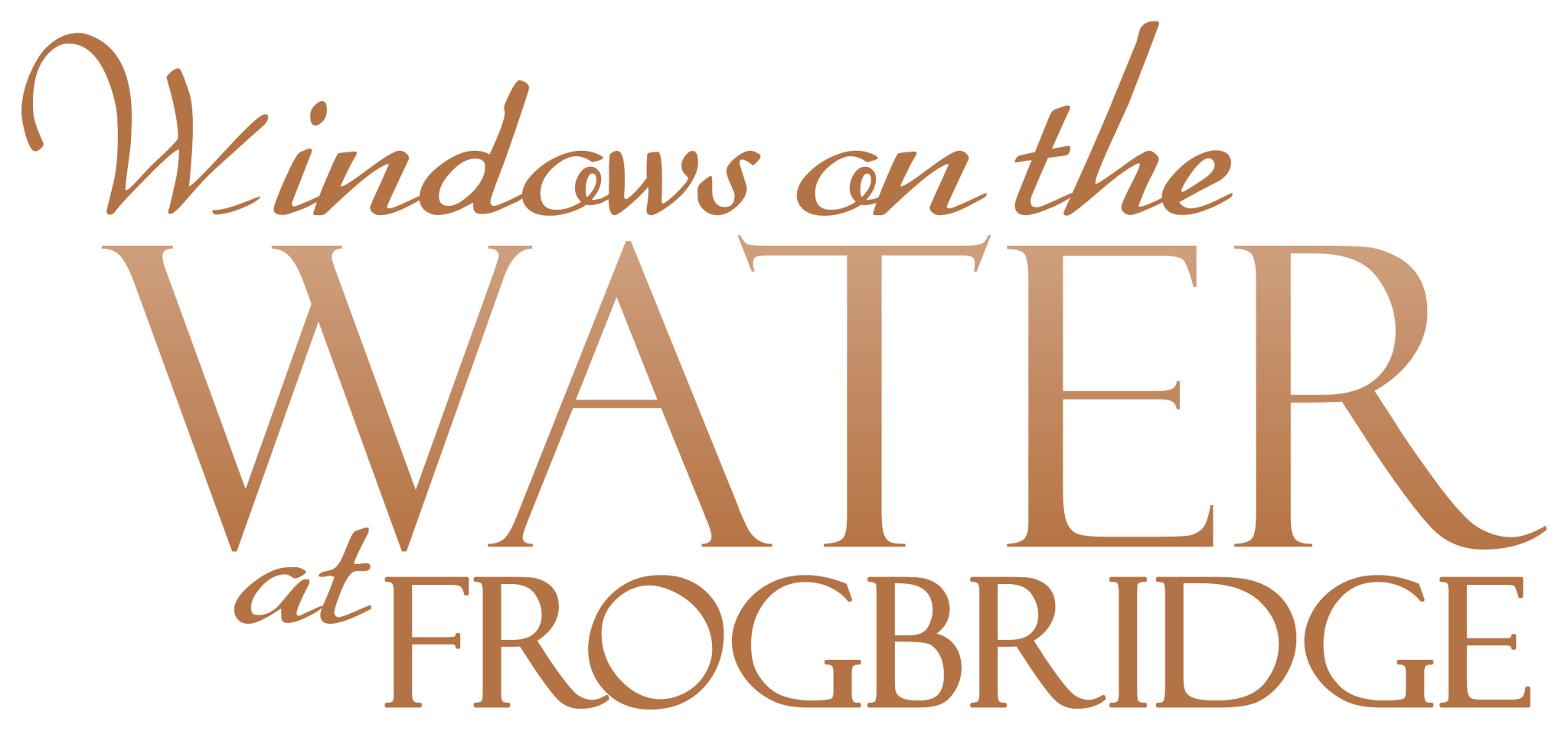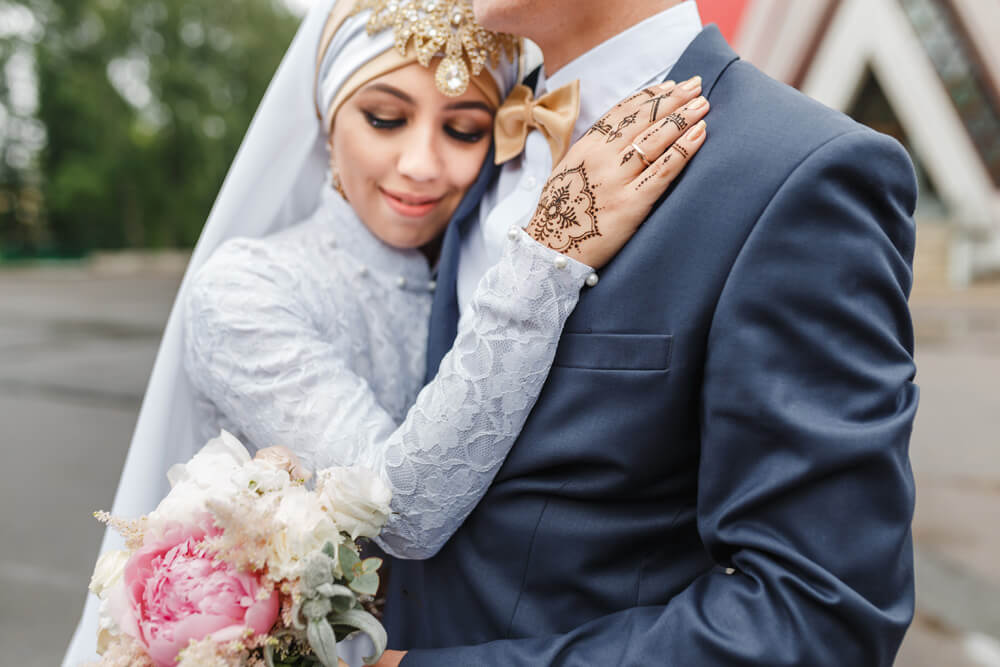Muslim weddings are such a joyous occasion for family and friends, and there is a lot of tradition involved. But if some of the people on your guest list are not familiar with the customs, it can be helpful to provide a brief overview before the big day so that everyone can be prepared for what’s to come. Understanding the couple’s culture and fashion protocol is crucial in ensuring that guests dress appropriately. This is especially true when it comes to the topic of the women’s dress code for a Muslim wedding. Understanding cultural norms is also important, particularly in relation to modesty and respect.
At Windows on the Water, we often host Muslim weddings, so we’re well-versed in the traditions. We aim to provide a comfortable and respectful atmosphere for all guests, regardless of faith. That is why we created this guide for you to share with your non-Muslim guests on the women’s dress code for a Muslim wedding.
What Should Women Wear to a Muslim Wedding? A Dress Code Guide
If you’re looking to put together a guide for your female guests at your Muslim wedding, here are a few guidelines to keep in mind: Women should dress modestly, ensuring their arms and legs are covered. It is also important to dress respectfully, showing consideration for the culture and traditions of the couple. Traditional attire often features bright colors such as red, green, maroon, magenta, and hot pink, which symbolize joy and celebration.
Modesty is Generally Required
In the Islamic faith, modesty in men’s and women’s dress is a sacred virtue. For the most part, all female guests should dress conservatively and avoid low-cut, tight-fitting, or revealing clothing. This may vary, however, depending on how strong the couple’s faith is or if they’re incorporating another faith into the ceremony as well. Some weddings may not require modesty as heavily as others do.
Depending on the culture observed, there are several types of dresses that are appropriate for a Muslim wedding. These include:
- Abayas: These are the classic, long, and loose-fitting robes that are often seen in Middle Eastern countries. They usually come with a matching headscarf and can be made from a variety of fabrics.
- Lehenga Choli: This is a traditional South Asian outfit consisting of a long skirt, blouse, and dupatta (long scarf). It is often heavily embroidered and adorned with intricate designs.
- Kaftan: This is a long, loose-fitting dress with full-length sleeves and a V-neckline. It can be made from a variety of fabrics and is usually adorned with beading and embroidery.
- Salwar Kameez: This is a popular South Asian outfit that consists of a long top, loose-fitting trousers, and a matching dupatta. It is often embellished with intricate embroidery and beading.
- Sari: This is a traditional Indian outfit consisting of a long length of fabric draped around the body. It usually comes with a matching blouse and can be made from a variety of fabrics, such as chiffon, georgette, and silk.
Traditional attire is highly valued at Muslim weddings, emphasizing modesty and cultural customs.
There are various other types of clothing one can wear as well.
Head Coverings: The Dos and Don’ts
In some Muslim weddings, female wedding guests will be asked to cover their hair. During the nikah ceremony, which is a significant part of the traditional Islamic wedding rituals, head coverings are especially important as a sign of modesty and respect. This is part of the Muslim culture and is a sign of modesty and respect. Once again, depending on the cultural traditions of the couple, there are a variety of options for head coverings.
For non-Muslim guests, scarves are the most popular and versatile option. They come in a variety of fabrics and colors and can easily be draped over the head. Other options include:
- Hijabs: This type of head covering is the most common type of headwear for Muslim women living in Western countries. It covers the head and neck but leaves the entire face visible.
- Niqābs: This type of head covering is worn primarily in the Middle East and North African Muslim traditions. It covers the entire face except for the eyes, which show through a narrow slit in the face covering.
- Chador: This is a large cloth that is held over the head and draped around the body. It is commonly seen in Iran and is often made from lightweight fabrics like chiffon and silk.
- Khimar: This is a head covering that is worn by many Muslim women in the Middle East and North Africa. It covers the head and neck but leaves the face visible.
Yet again, the preference of what to wear will depend on what the couple wants their guests to be garbed in.
Color Choices in Traditional Attire
Muslim weddings often feature a beautiful array of vibrant colors that add a touch of charm to the event, so you may often feel free to add a pop of color to your outfit. It is generally not appropriate to wear black to a Muslim wedding, as it is often associated with mourning. If the wedding has a theme, you can easily match your attire to complement the theme. However, some cultures dislike guests wearing certain colors like black, white, or red.
For example, some Arabic cultures (similar to many Western cultures) believe only the bride should wear white. Others discourage wearing dark colors, as these are reserved for funerals and would be inappropriate for the occasion. Red is often the color of the bride’s dress in certain cultures, such as India and Pakistan. Once again, if you’re not sure what color to wear, we recommend that you ask the couple directly.
Experience the Magic of Windows on the Water: The Perfect Venue for Muslim Weddings in New Jersey
Windows on the Water is the perfect venue for Muslim weddings in New Jersey. Located in beautiful Millstone, Windows on the Water offers a stunning waterfront setting. The venue is a great combination of modern amenities and timeless beauty that will make your wedding truly magical.
Windows on the Water is proud to offer a variety of special services to accommodate your special day. Our experienced staff will ensure that your wedding is a stress-free and magical experience. From the beginning of your planning process to your grand exit, we will be there to make sure that your day is perfect. Contact us online or call us at (609) 208-9475 today to schedule a tour and learn more about how we can help.

